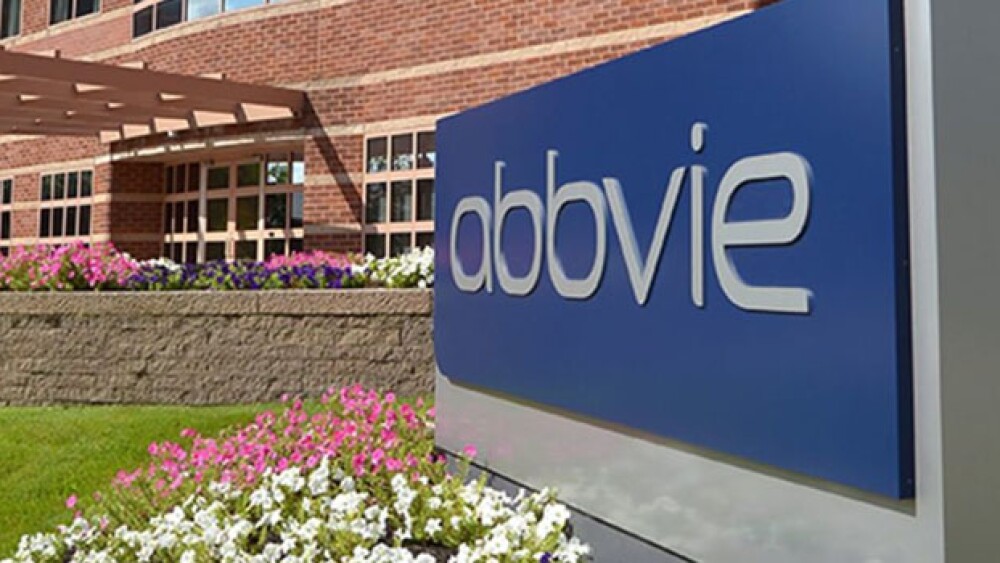AbbVie announced positive topline results from its SELECT-EARLY Phase III clinical trial in rheumatoid arthritis, but disappointed with Rova-T small-cell lung cancer therapy.
AbbVie announced positive topline results from its SELECT-EARLY Phase III clinical trial in rheumatoid arthritis.
The trial is a Phase III, multicenter, randomized, double-blind, parallel-group, active comparator controlled trial to evaluate upadacitinib monotherapy compared to methotrexate monotherapy in adults with moderate to severe rheumatoid arthritis who are methotrexate-naïve. The trial met the primary endpoints of ACR50 at week 12 and clinical remission at week 24 compared to methotrexate. All ranked secondary endpoints were met. The trial is ongoing.
Upadacitinib is an oral JAK1-selective inhibitor. Phase III trials of the drug in RA, psoriatic arthritis and Crohn’s disease are ongoing. It is also being evaluated in ulcerative colitis, ankylosing spondylitis and atopic dermatitis.
“SELECT-EARLY is the fifth pivotal trial that will support regulatory submissions for upadacitinib in rheumatoid arthritis later this year,” said Michael Severino, AbbVie’s executive vice president, research and development and chief scientific officer, in a statement. “Results from SELECT-EARLY further support our belief that upadacitinib has the potential to be an important new treatment option for patients with rheumatoid arthritis.”
That’s probably good news, because the company hasn’t had much luck with its Rova-T small-cell lung cancer therapy, whose Trinity trial data was presented at the American Society of Clinical Oncology (ASCO) Annual Meeting this week. Geoffrey Porges, an analyst with Leerink, wrote in a note, “The results shown in the presentation were even worse than we had feared, and although AbbVie’s stock sold off much more than the value of Rova-T after the announcement, we can’t help but regard the ongoing trials as largely fruitless exercises. Furthermore, the toxicity signal from the trial, along with the relatively marginal efficacy signal, justifies the complete elimination of all revenue associated with Rova-T from our company forecast and valuation for AbbVie.”
AbbVie picked up the drug when it acquired Stemcentrx for $5.8 billion. AbbVie, in what is unlikely to happen, projected peak sales of $5 billion a year.
Derek Lowe, writing for his “In the Pipeline” blog for Science Translational Medicine, agrees with the analysis, but goes a step further to put it into the context of the recent Right to Try legislation passed by Trump. The law would make it easier for critically ill patients to gain access to experimental drugs that have shown promise in early-stage clinical trials.
Porgess had noted, “The TRINITY study provided yet another lesson in the perils of relying on single arm early trials without doing a randomized trial…”
Lowe writes, “it’s also worth thinking about this situation in light of that





